ARS scientists are employing artificial intelligence (AI) to accelerate breeding for new plant varieties that will greatly benefit farmers.
Search Articles
-
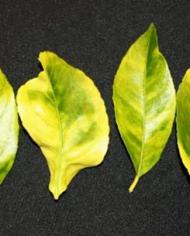
ARS researchers in Fort Pierce, FL, are advancing research that will contribute to combatting a disease that has been devastating the U.S. citrus industry.
Aug 20, 2025 -
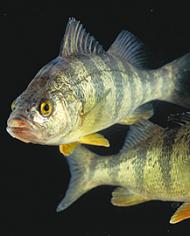
ARS-funded scientists developed an artificial intelligence (AI)-aided computer vision system for real-time monitoring of fish in recirculating aquaculture systems.
Mar 27, 2024 -
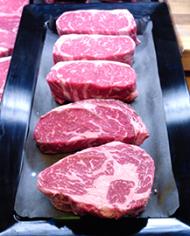
Scientists developed a method to analyze PFAS in foods including chicken, pork, beef, catfish, and eggs.
May 27, 2024 -
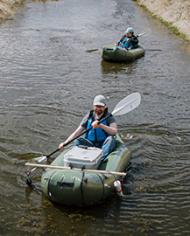
A novel approach for determining the effectiveness of conservation practices in reducing nitrate losses.
Mar 27, 2024 -
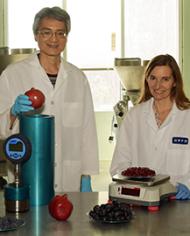
ARS researchers in Albany, CA, are developing a new technology that could "freshen up" the frozen fruit and vegetable market.
Mar 27, 2024 -
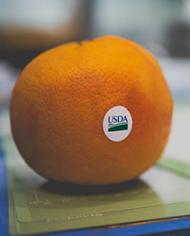
ARS researchers worked with the produce industry to develop a food-safe, compostable adhesive formulation for price look-up labels on produce.
Mar 27, 2024 -
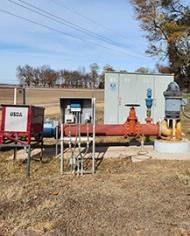
Pumping groundwater from local aquifers to irrigate crops has increased yields but is steadily reducing the supply of available water for future use.
Mar 27, 2024 -
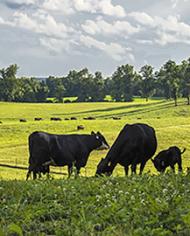
ARS, the University of Arkansas and the National Cattlemen’s Beef Association, led a study to identify environmental impacts from U.S. beef production.
Mar 27, 2024 -
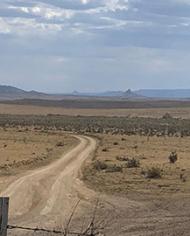
An ARS research team along with the Southwest Climate Hub in Las Cruces, NM, developed a resource called The Water Adaptation Techniques Atlas.
Mar 27, 2024 -
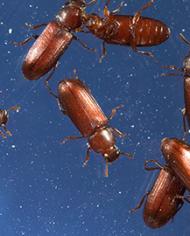
ARS scientists used artificial intelligence to develop image-based identification for five common stored grain insect species.
Feb 12, 2024 -
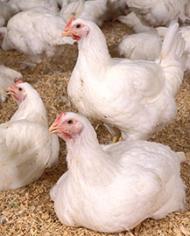
Study finds ammonium nitrate had 34% lower yield compared to poultry litter treated with alum.
Mar 27, 2024 -
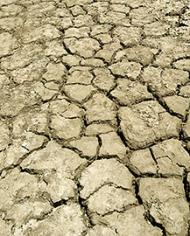
ARS researchers and the USDA Southwest Climate Hub developed a new set of tools aiming at helping farmers, ranchers, and other stakeholders plan for serious environmental challenges.
Mar 02, 2022 -
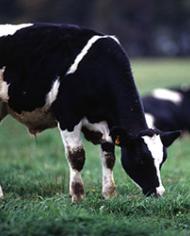
Grass-Cast uses historical data about weather and vegetation growth to predict how much grass will be available for livestock grazing during the upcoming summer.
May 24, 2019 -
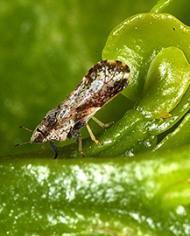
Developed by ARS's researchers, symbiont technology can be delivered to citrus trees in the field and is scalable from a few to millions of trees.
Mar 27, 2024 -
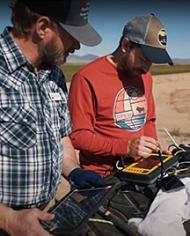
Researchers worked with the Quapaw tribe to create high-resolution digital maps of soil properties for their tribal lands.
Apr 26, 2024 -
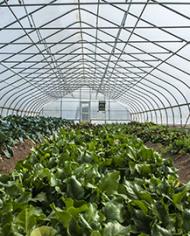
ARS researchers have developed a tool that can provide more precise answers that lead to healthier plants and greater yields.
Mar 27, 2024 -
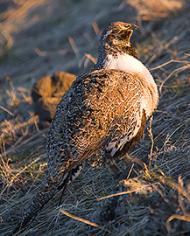
Researchers used the Lawson Aerator to evaluate the effectiveness of a mechanical treatment to renovate rangelands.
Mar 27, 2024 -
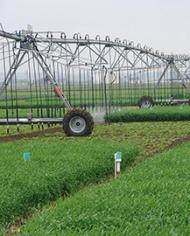
To support efficient water management, ARS researchers developed an open-source model, pyfao56, for precise crop water management.
Mar 27, 2024 -
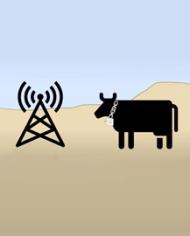
A team of researchers has combined satellite data with virtual fencing to turn ordinary livestock grazing into a powerful tool to reduce wildfire risk.
Mar 27, 2024 -

Scientists have assembled a collection of yeasts that convert agriculture waste into bio-oil, which is then easily converted into biodiesel or renewable jet fuel.
Apr 18, 2023 -
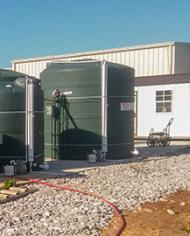
ARS scientists are sounding out a new way to improve biogas production and help the environment.
Apr 28, 2023 -
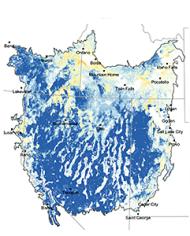
Researchers developed a forecast tool to determine which areas have the highest probability of a large rangeland fire.
Apr 13, 2023 -
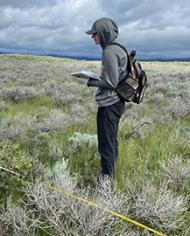
Scientists are taking grazing to a new level by developing sheep that prefer or tolerate the bitter taste of plants.
Apr 04, 2023 -
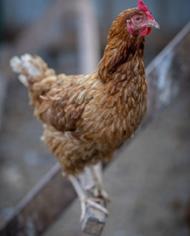
ARS researchers in Temple, TX, employed adaptive nutrient management to determine preferred balances on farms.
Mar 08, 2022 -
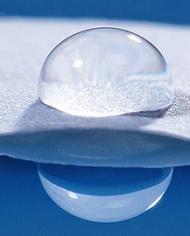
A stabilizer created using corn starch and vegetable oil opens the door to all sorts of useful food-grade and industrial applications.
Mar 07, 2022 -

ARS researchers used computer modeling to predict the limited potential of livestock transmission of SARS-CoV-2.
Mar 04, 2022 -
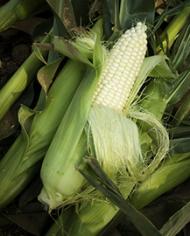
A team of researchers and their partners have found another way to conserve water: late planted corn.
Mar 03, 2022 -
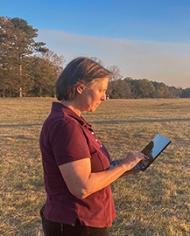
ARS researchers have developed a unique mobile system that assesses and maps out soil carbon to a depth of 30 centimeters (the plow layer) – all in real time.
Mar 01, 2022 -
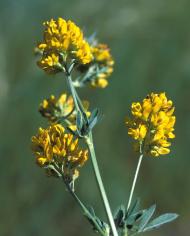
Beef producers in the western United States have been searching for alternatives to nitrogen-rich fertilizers .
Feb 28, 2022 -
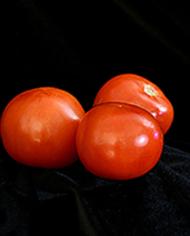
Researchers developed a cool new intervention technology involving the use of cold plasma and hydrogen peroxide aerosols.
Feb 22, 2022 -
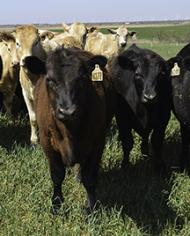
Researchers discovered that sending cattle to feedlots earlier than the traditional timing of October may provide a two- fold benefit.
Apr 05, 2021 -
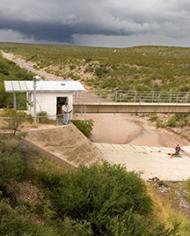
ARS researchers helped the United Kingdom improve the accuracy of its widely used weather-forecasting models.
Mar 22, 2021 -

ARS’s Office of Technology Transfer is, in essence, the bridge that connects ARS scientific technologies to homes across the Nation.
Jul 30, 2020 -
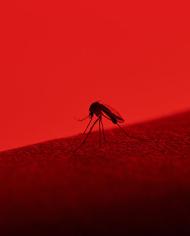
ARS scientists have developed a new test to quickly detect Zika virus in mosquitos.
Jul 27, 2020 -
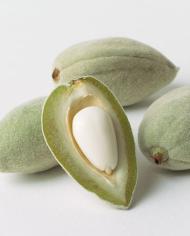
Scientists developed a effective, energy-saving technology to help keep microbes and mycotoxins off almonds.
Jul 27, 2020 -
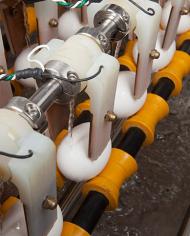
ARS scientists at the Food Safety and Intervention Technologies Laboratory have hatched a way to produce safer eggs without jeopardizing quality.
Jul 27, 2020 -
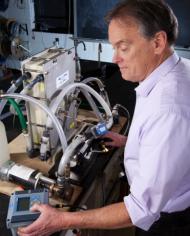
Electrodialysis may not only benefit farmers, but also the environment by reducing nitrogen runoff from farms.
Jul 24, 2020 -
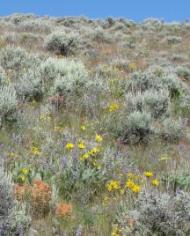
Cheatgrass outcompetes native plants for nutrients and water and deprives animals of dietary variety and quality as well as habitat.
Jul 24, 2020 -
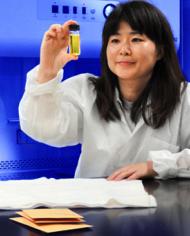
ARS researchers have created silver nanoparticles whose antimicrobial properties can be passed directly into the cotton fibers that make up fabrics and textiles.
Apr 26, 2019 -
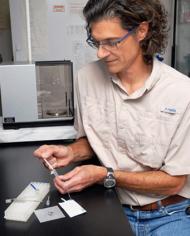
ARS researchers and APHIS colleagues developed a new test that quickly identifies red imported fire ants
Mar 29, 2019 -
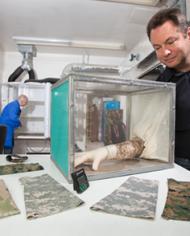
ARS is helping to protect our troops overseas by developing repellent treatments for military clothing.
Apr 25, 2018 -
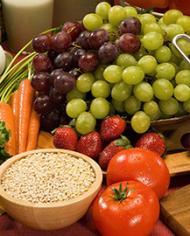
The USDA Branded Food Products Database contains nutrition details on more than 80,000 name brand prepared and packaged foods available at restaurants and grocery stores.
Mar 29, 2018 -
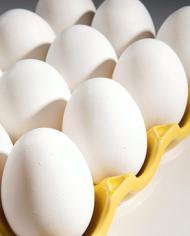
ARS scientists designed and developed portable and stationary LED-light grading systems and developed a computerized software system.
Apr 26, 2017 -
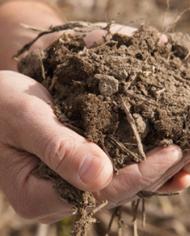
Farmers can better determine how much or how little nitrogen to apply for optimal crop yields by using "Soil-Test Biological Activity" approach.
May 28, 2019 -
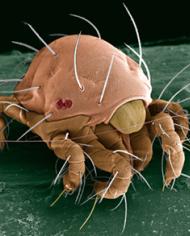
ARS Electron and Confocal Microscopy Research Unit helps expand the scientific understanding of microbes, pests, and pathogens that attack crops, infect livestock, and sicken thousands of people each year.
May 23, 2019 -
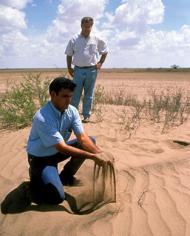
Researchers are exploring the use of robots to take on hazardous duties related to studying wind erosion of soils and the expansion of deserts.
May 22, 2019 -
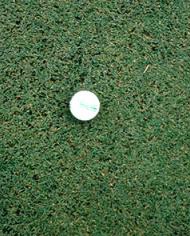
35 years of research in turfgrass breeding and genetics has improved the very surface of the earth we walk on.
May 21, 2019 -
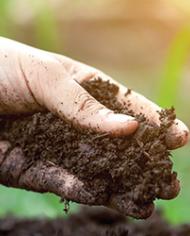
Researchers developed state-of-the-art sensors that estimate soil water levels using readings from electromagnetic pulses.
May 16, 2019 -
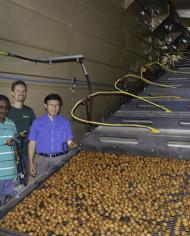
ARS researchers teamed with University of California-Davis scientists to devise a thriftier way to dry walnuts.
May 03, 2019 -
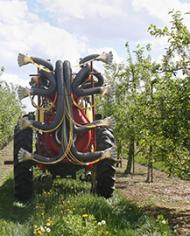
A team led by ARS scientists in Wooster, OH, developed and tested the smarter sprayer technology.
Apr 22, 2019 -
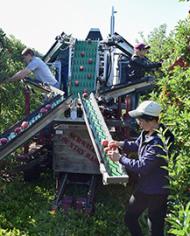
Researchers have developed a self-propelled apple-harvest and in-field-sorting prototype machine.
Apr 17, 2019 -
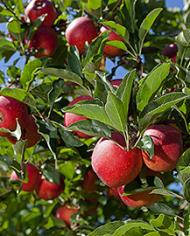
ARS scientists investigated using a robotic vision system, RoTSE, to prune fruit trees during the winter.
Apr 17, 2019 -
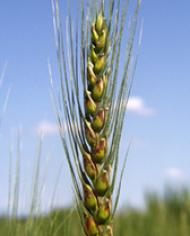
Work by the U.S. Wheat and Barley Scab Initiative, an ARS-led coalition, has reduced scab losses eightfold since 2004.
May 28, 2018 -
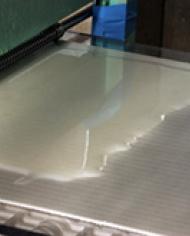
ARS scientists have developed a biodegradable edible film from casein, a milk protein, which can be used as a food wrap.
May 01, 2018 -
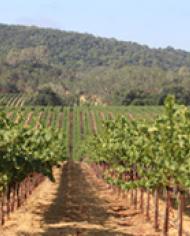
ARS scientists are working with satellite imagery in collaboration with grape growers to improve irrigation water management on vineyards that stretch across thousands of acres.
Apr 25, 2018 -
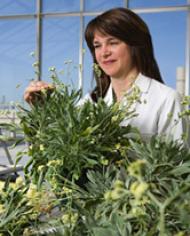
ARS scientists have made breakthroughs in producing passenger tires with guayule rubber.
Apr 11, 2018 -
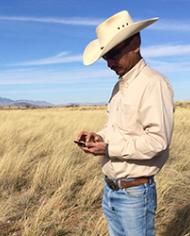
ARS has developed the LandPKS app to help farmers better monitor their soil and crop conditions to make better decisions about irrigating, weeding, and fertilizing crops.
Mar 29, 2018 -
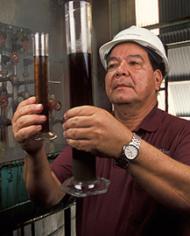
ARS researchers developed a new heat treatment for use during the sugarcane juice clarification process to eliminate microbial contamination.
May 04, 2017 -
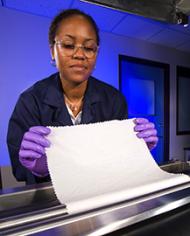
ARS has developed an improved cotton-based, blood-clotting wound dressing.
Apr 20, 2017 -
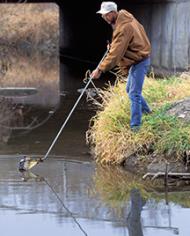
ARS scientists made significant enhancements to the Soil and Water Assessment Tool.
Mar 21, 2017



